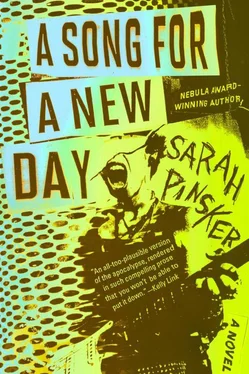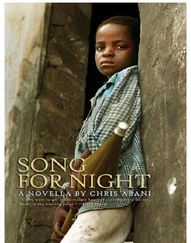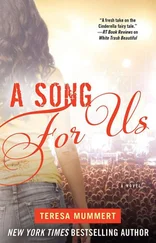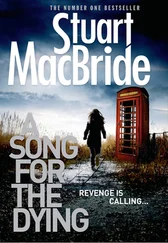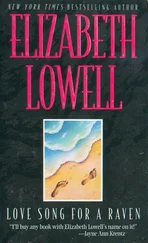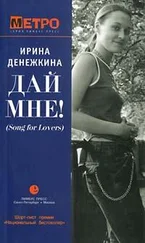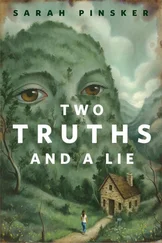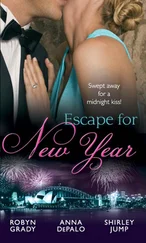He grinned. “I was hoping you’d say yes.”
—
We waited to see how many actually came out of the two thousand ticket holders. The local opening band never arrived; neither did the DJ whose show we had played earlier in the day, who was supposed to introduce us.
I stood in the wing, behind the curtain, and watched people file in. Tried to interpret their expressions, figure out why they had showed up. The theater had assigned seating, so some sat too far for me to read their faces, but body language had a longer wavelength: grim, weary, wary. A couple near the front laughed and joked with exaggerated movement, trying too hard. The rest were quiet, far quieter than usual. Most nights, canned music filled in the wait time, but what to play on a night like this? Any choice was a statement, to be judged too upbeat, too downbeat, too heavy, too disrespectful. None of those options were right when there was a tiny shoe in rubble three thousand miles away.
The house lights were off, so I had no idea of the size of the audience, though I knew from their movement in the dimness there were at least a few people out there. I wasn’t sure if I’d have made the same decision in their shoes, to risk being out in public.
Except I had; I kept forgetting. Some part of me kept fooling the rest of me into thinking I hadn’t had a choice. Music wasn’t a choice as far as I was concerned, even if I hadn’t managed to say as much to my band. Playing music was the fire that kept the monsters at bay. Nothing could touch me in the middle of a song.
The audience had a choice; they had come. Checking their phones, murmuring numbers and updates to each other, shaking their heads, but present. Maybe they wanted my guitar to keep them safe, too.
April walked up behind me.
“What if they don’t like us?” I whispered.
“They like us, or they wouldn’t be here,” she whispered back.
Hewitt appeared from the wing, looking grim. “They’ve grounded all planes. Schools are canceled tomorrow.”
“Damn,” I said.
He waved his guitar at me. “I’m going to go out and tune one more time for both of us. When we’re ready, you’re going to come out there and start playing, and we’re going to make people forget what’s outside this room for a little while.”
I peeked out from behind the curtain again, then nodded. I still hadn’t thought of anything worth saying. No words could be more appropriate than the four bars of guitar noise starting “Block Letters.”
Hewitt tuned my guitar one more time, then his. The others took their positions, Silva the soundman standing in JD’s spot. The room was eerily quiet. Normally there’d be cheers, clapping. I panicked. We should have had someone introduce us. I should have come up with something to say. I had no idea what they wanted from me.
My band looked in my direction. Waiting, watching as I stood paralyzed. As the numbers from the news hit me, a wave of numbers that were also names, names I didn’t know, people. People who had gone out to a baseball matinee and hadn’t come home. In all the fussing over whether to play or not to play, I had locked that image away from myself. Had these people done the same? Numbly gotten in cars, driven to our show because it was what they were supposed to do tonight? Or did they want more from me?
I took a step out onto the stage. It was dark, except for a spotlight where I was supposed to be.
“You got this, Luce,” April whispered. I walked past her, to where my guitar and my spotlight waited. I put my hand to my brow to shade my eyes, strained to see the people scattered among the empty seats. They sat quiet, waiting. Waiting for me.
I stepped to the mic. “Come closer. There are plenty of empty seats up front.” Then, “Please.”
Nobody moved for a moment, and then one person in the back stood. Her chair closed with a creak behind her. It was so quiet every step echoed as she walked to the third row and chose a new seat. Another pause, then others began to move, as if she had given them permission. I strapped on my guitar while they rearranged themselves.
When the shuffling and creaking stopped, April counted us off. I hit my distortion pedal and played. Four bars of noise scaffolded on the solid frame of an A chord and its cousins, all of us building onto it with muscle and bone and blood. I almost forgot to come in with the vocal, the guitar felt so good in my hands.
With the song came the realization. The audience wasn’t here for mourning; they had come for elegy. That was within our power.
We had chosen our set carefully. No “Timebomb,” no “End Days.” Tried to keep to the upbeat stuff, other than “Blood and Diamonds,” which was uptempo but dark, and which they’d expect no matter what. Really, it didn’t matter what we played. Silva locked in with April as if they had been playing together for all the months JD had been with us. We butchered “Don’t Even Think About It,” the new song, but it was Hewitt who forgot the change we’d made at soundcheck. It came around by the end, though. What mattered was that we were there and they were there, a conspiracy against despair.
The ovation surprised me. I toweled my neck, turned to the band. “Do you guys mind if I do one alone?”
“It’s your show,” Hewitt said.
“Thanks—can I use your acoustic?”
He passed it over. I put my own guitar back on its stand.
“Can you bring the house lights up, please?” I asked into the mic.
We saw them for the first time for real. Maybe fifty people out of two thousand seats, all crowded to the front.
“If you get the gist and want to sing along, feel free.” My lone voice felt enormous in the silent room. I hadn’t played this cover in years, but it was the kind that came to my mind on a night like this. A few voices joined in, then more. When the song ended, I gave a little salute and hopped off the front of the stage.
“That’s it,” I said. The house lights rose, again without music. Hewitt came to take his guitar from me.
“Go on,” he said. “I’ll pack up.”
I spent the next thirty minutes chatting with the people who’d come. Sold some T-shirts, signed some records, but mostly hung around and talked. Everyone was reluctant to step back into the ugly world outside.
“Thank you for playing. I couldn’t sit at home alone tonight,” one woman said.
“I drove an hour to get here,” said another. “I’m glad I did.”
More so than usual, they all wanted a piece of me, a moment. I tried to give the time they needed. One after another, they each gave their variation on that story, and then wandered out into the night.
—
One thousand, three hundred, and twenty-three people died in the stadium bombs. Five more—all janitorial employees—died in another bomb in a shuttered mall while we were onstage.
A couple of years later, a journalist worked out that our show was the last large concert. They had to stretch the definition of large to make it work, but I guess they went on the theater’s size, and the fact that all the stadiums and arenas and concert halls went dark that night for good.
The journalist didn’t know it, and I didn’t bother to say, but I think we probably had the last two shows, if you wanted to count the dance party in the hotel parking lot in the early hours of that day. I tended to always think of the one whenever I thought of the other. Making music in the darkness, then music against the darkness. The decision to play for the people who chose to go out instead of hiding in their homes. They’d have years and years for that.
All that came later.
That night, after the audience straggled out, after Alaia boxed up and counted our remaining merchandise, after her hand lingered against mine again far longer than necessary for passing a pen from one person to another, she and I stole a moment in the dark balcony. Hewitt called for me once from the bottom of the stairwell, and we giggled and shushed each other to keep from giving ourselves away. We leaned into each other, me and the woman who mistakenly thought I was the brave one. She wanted me, and I wanted someone to coax me from my head for a few minutes. Maybe that was what she’d come looking for, too; we didn’t talk.
Читать дальше
